Blue Ridge Discovery Center’s Fall Mushroom Walk
Twelve curious hikers joined Ken Crouse for his second annual BRDC mushroom walk on Saturday, September 19th. We met at Cox’s Chapel Low Water Bridge at 10am for a brief introductory show-and- tell prior to carpooling to a location across the river and into the woods.
It was a ‘beautiful’ morning, crisp and clear, but also very dry following a week of bright, sunny days and low humidity...not the best of conditions for a mushroom foray. However, cool nights and mornings also trigger the fruiting of many fungi, so we had at least one thing in our favor.
Ken took us into damp areas, which proved to be productive enough to keep us busy identifying and comparing a wide variety of mushroom species. It is the purpose of most mushroom hunters to harvest for the kitchen table. Ken focused on offering descriptions of what to look for in great detail, how to sort through similar looking species from safe to deadly. The general morphology of a mushroom is an indicator, but the base of the stem and ‘root’ structure, careful inspection of the underside of the cap, and spore prints all add up to the level of confirmation needed to be certain of identification. Other clues include gill structure and attachment, smell, bruising color, and habitat. In fact, Ken said he usually employs seven systematic taxonomic features to assure a firm ID, and has not once in his long mushroom hunting life experienced any gastronomical discomfort from eating fungi. There are several spore dispersal systems besides gills, and serve to link specimens to family...such as the boletes which have fleshy tubes or pores, or the tooth fungi in the Hydnaceae family, puffballs which form spores inside, and club and coral fungi, which disperse spores from a fertile outer surface.
After collecting a number of specimens, we drove to a local picnic area where, and while taking lunch, Ken spread out field guides and our collection for a more thorough discussion on identification.
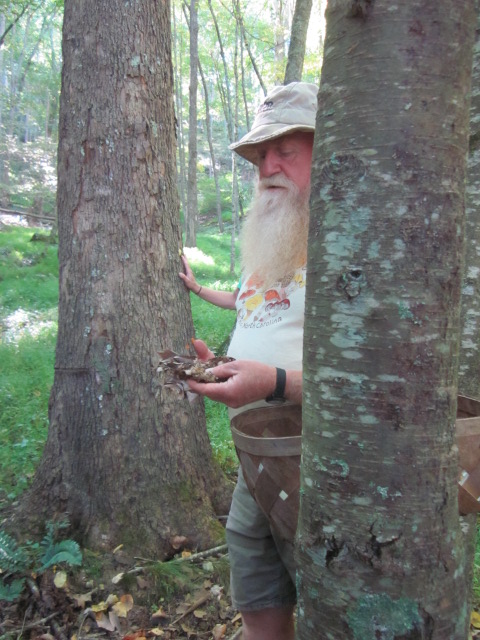
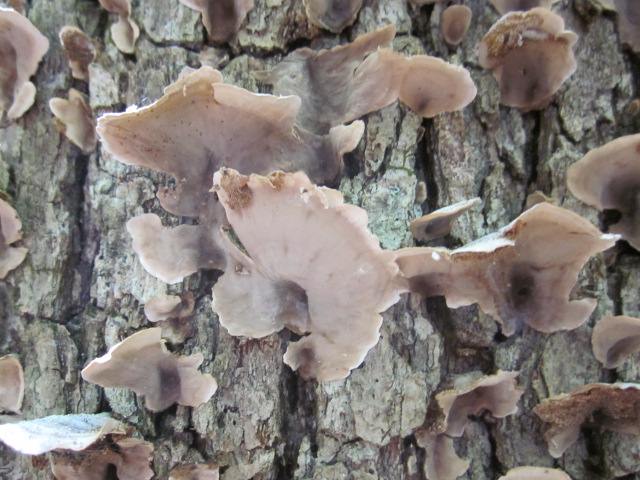
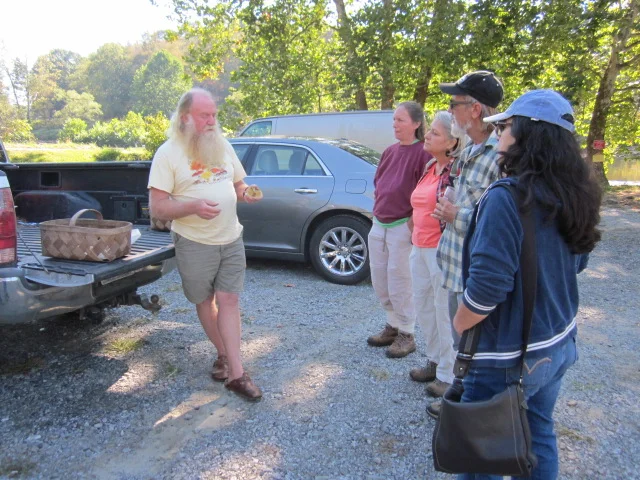
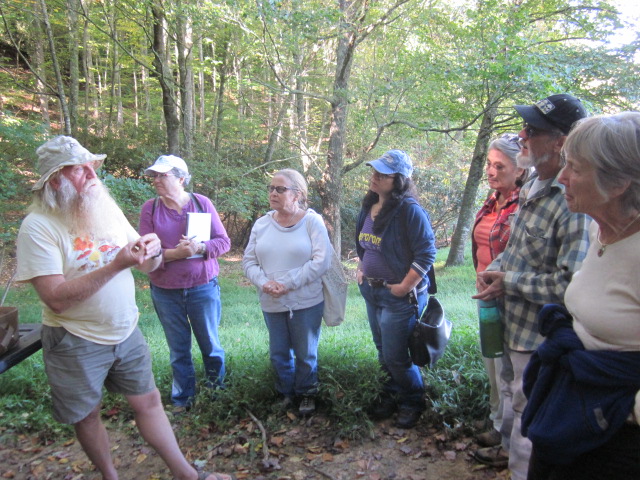
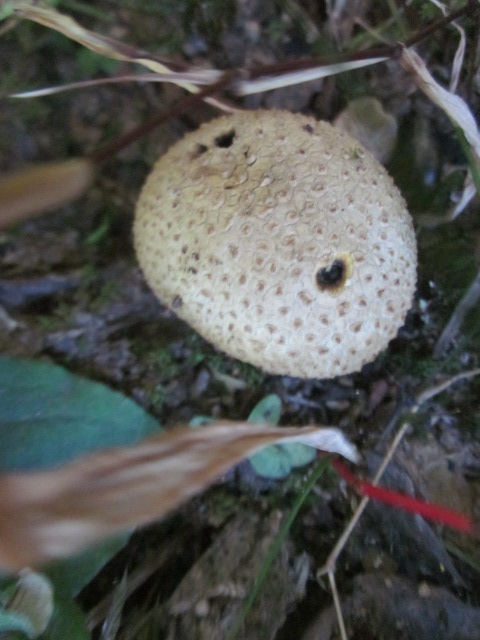
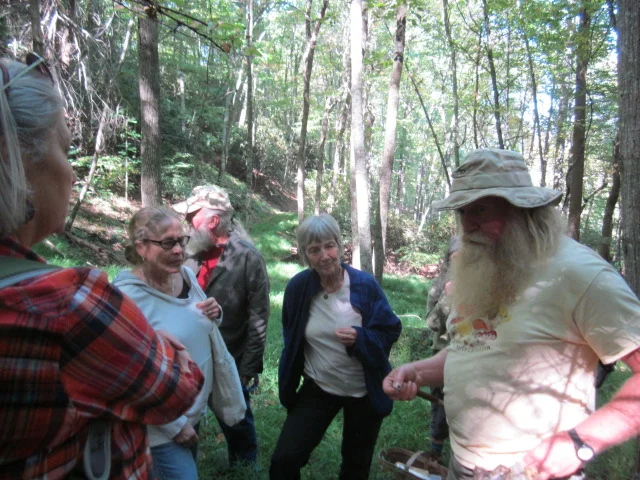
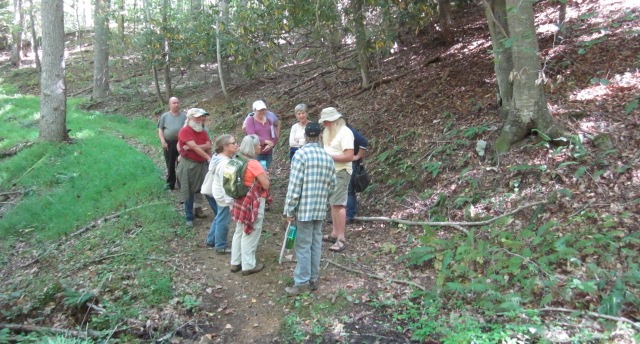
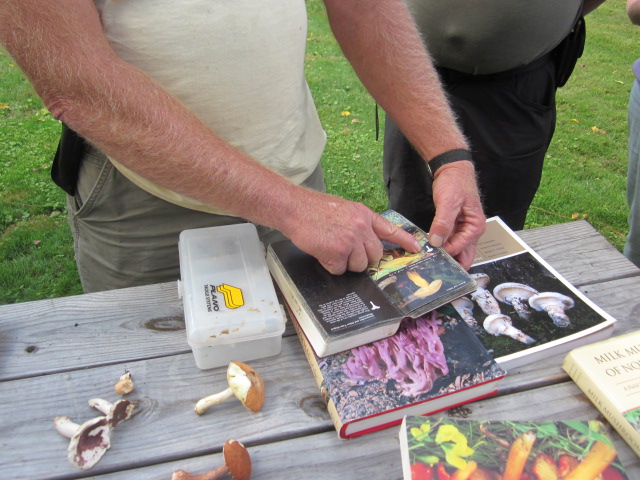
Following is a full species list from our day in the woods:
BRDC 9/19/15 Mushroom Walk, River Ridge Farm
Austroboletus gracilis – Graceful Bolete
Tylopilus plumboviolaceous – Lilac-brown Bolete
Suillus granulatus – Granular-stalked Bolete
Polyporus badius – Black-footed Polypore
Stereum ostrya – False Turkey Tail
Stereum complicatum – Bracket Mushroom
Trametes versicolor – Turkey Tail
Oxyporous populinus – White Polypore
Tyromeces chioneus – Cheese Polypore
Phellinus rimosus – Cracked Cap Polypore
Daldinia concentrica – Carbon Ball
Chlorocibora aeruginescens – Green-wood Stain
Lycoperdon perlatum – Gem-studded Puffball
Lycoperdon pyriforme – Pear-shaped Puffball
Schleroderma citrinum – Poison Pigskin Puffball
Scuttelaria scuttelina – Eyelash Cup
Hygrophorous praetensis – Waxy Cap
Clitocybe dilitata – White Clitocybe
Russula variata – Variable Russula
Marasmius sicca – Orange Pinwheel
Marasmius rotula – White Pinwheel
Crepidotus mollis – Jelly Crepe
Mycena pura –yellow Mycena
Mycena luteopallens – Walnut Mycena
Panellus stipticus – Luminescent Panellus
Collybia confluens – Tufted Collybia
Ramaria conjunctipes – Violet Coral
Usnea sp. – Tree Beard Lichen (Medicinal)
For a brief review of fungi see: http://eol.org/pages/5559/overview
Scott Jackson-Ricketts
Ken Crouse